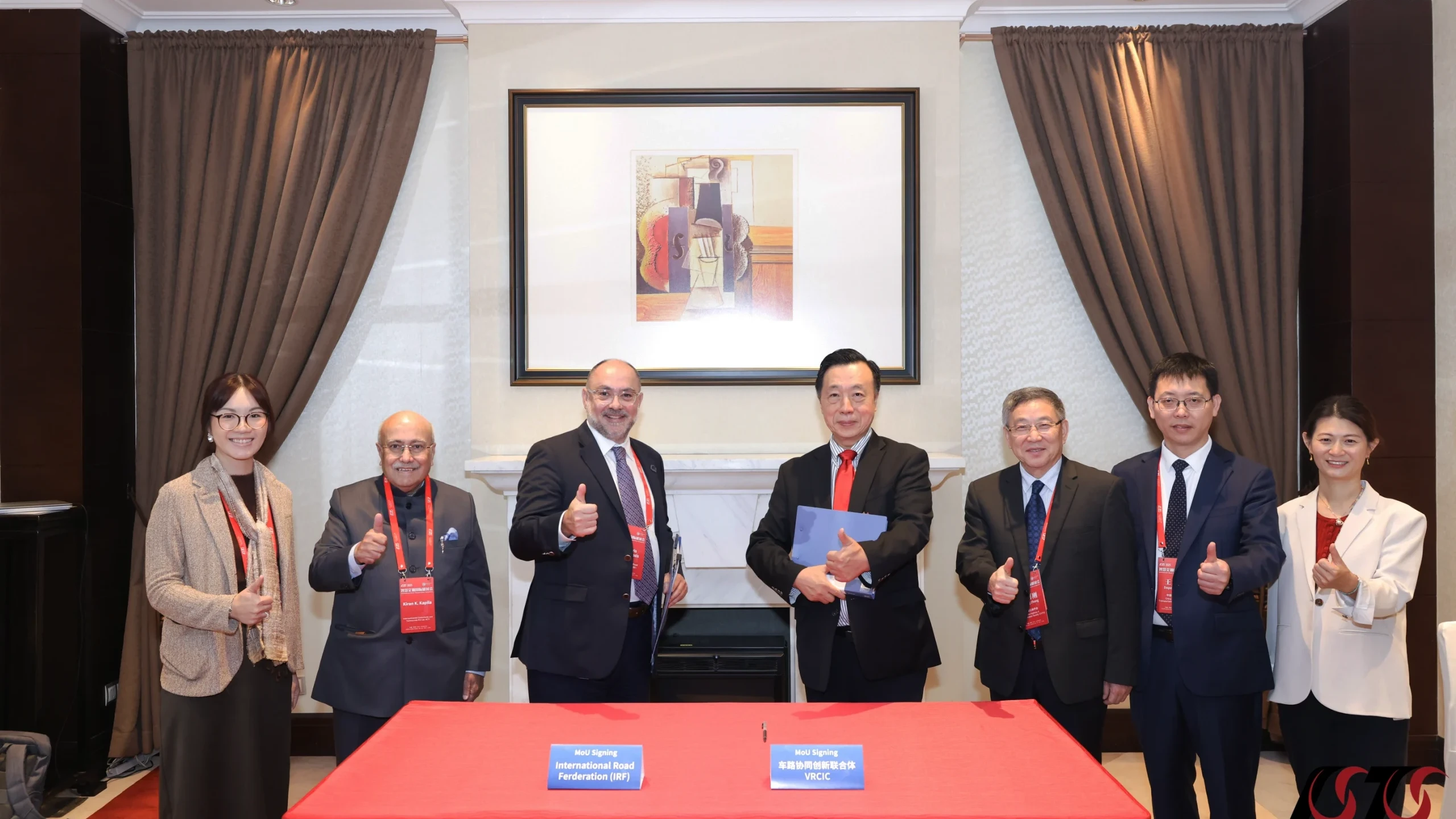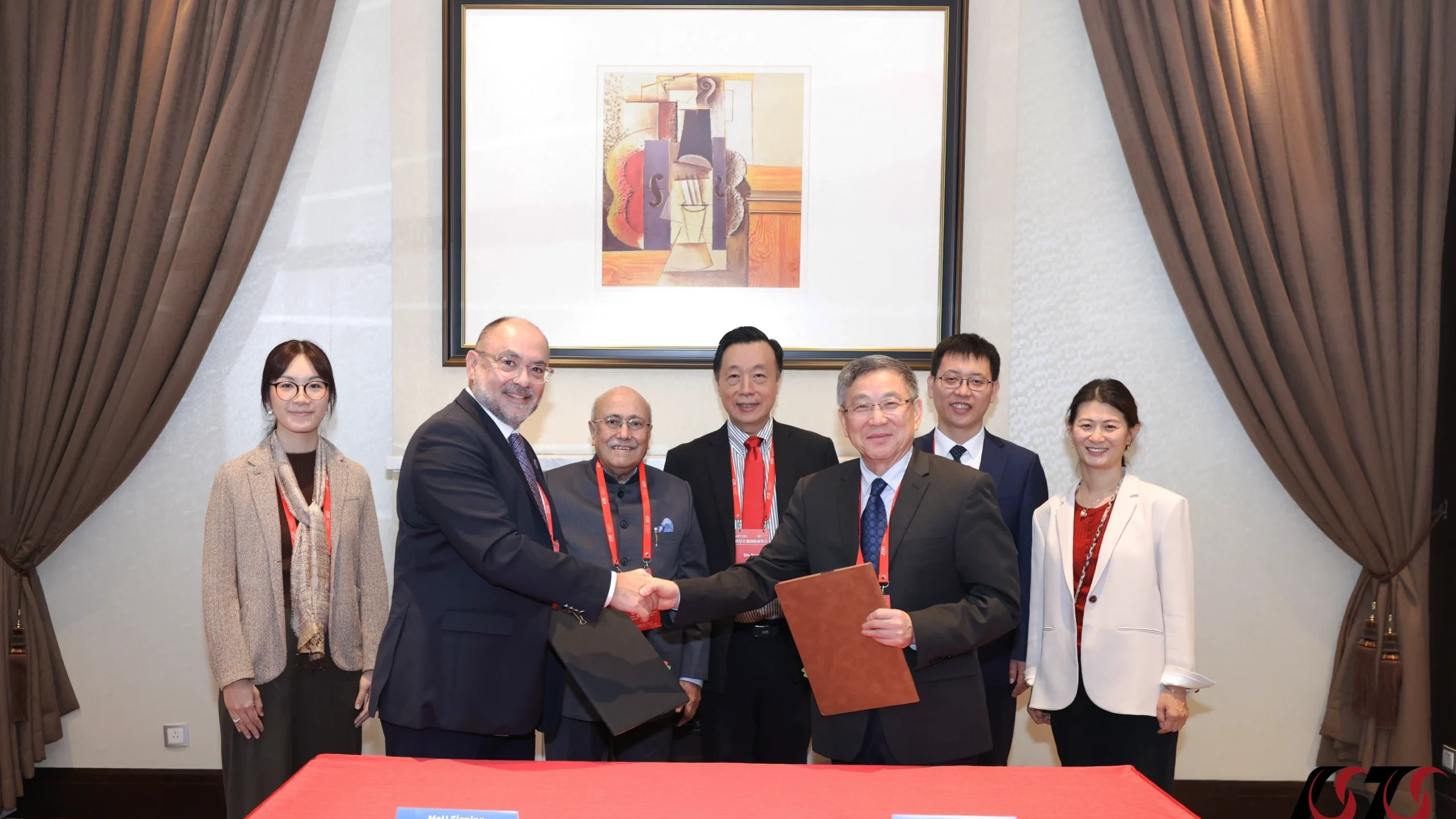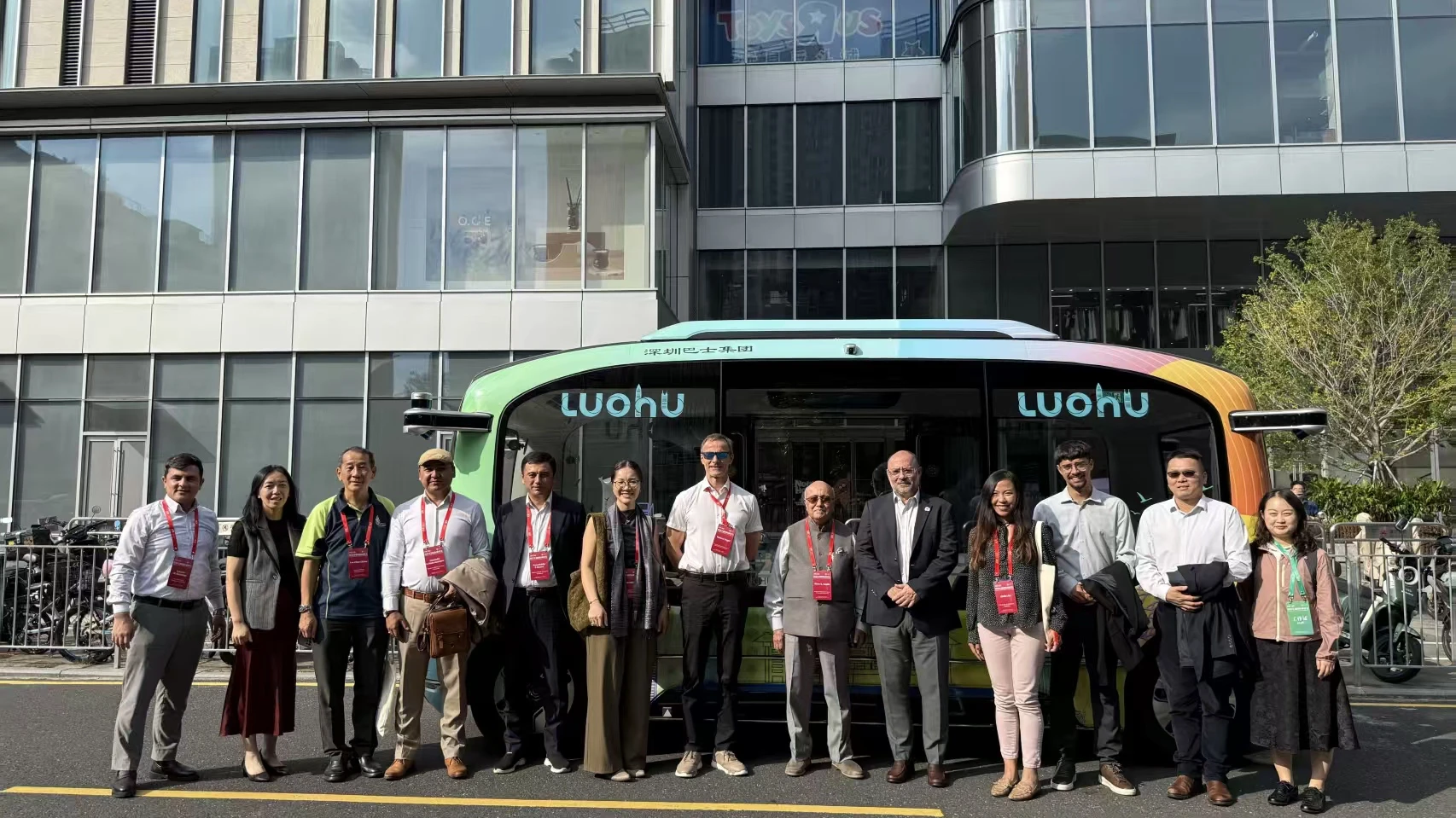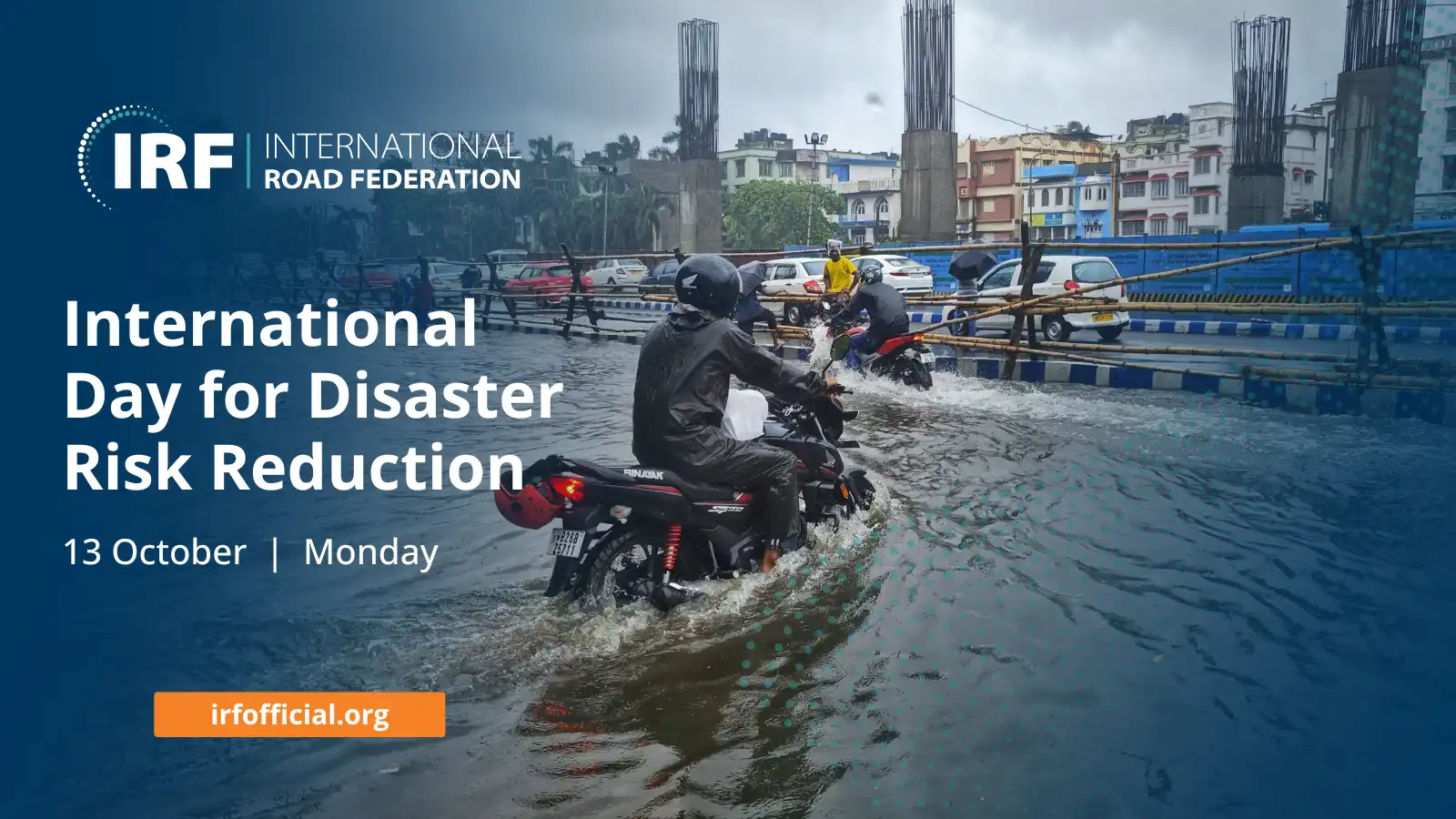Regional Stakeholders Convene in Marrakech for Safe and Inclusive Road Design Workshop
Marrakech, Morocco | 8 to 9 October 2025 — Senior government officials, development partners and road safety experts from across North and West Africa gathered this week in Marrakech for a two-day stakeholder consultation workshop on the Safe and Inclusive Road Design in North and West Africa Project which aims to improve road safety in Morocco, Mauritania, and Senegal. It will update outdated design standards to better protect vulnerable road users like pedestrians, cyclists, and the elderly.
Organised by the International Road Federation (IRF) and the United Nations Economic and Social Commission for Western Asia (UNESCWA) with support from the UN Road Safety Fund (UNRSF) and the Islamic Development Bank (IsDB) the workshop marks a key milestone in the co-development of safer, more inclusive national road design standards in Mauritania, Morocco, and Senegal.
Integrating Road Safety at the Design Stage
Opening the workshop, Benacer Boulaajoul, General Director of Morocco’s National Road Safety Agency, observed that “the design of road infrastructure has a decisive influence on road safety performance. However, this aspect does not always receive the priority it deserves”.
Malick Fall, Director of Transport Prevention and Safety at Mauritania’s Ministry of Equipment and Transport (MET), highlighted how the project supports the country’s efforts to align road safety policies with global best practices.
He emphasised that Mauritania, with over 6,000 km of roads and more than 2,000 km under development, aims to systematically integrate safety into every design phase.
“We are committed to revising our road design standards to reflect international norms. This means incorporating features such as safer shoulders, pedestrian and cyclist facilities, and design-based speed management to reduce crashes and protect all users”, Malick Fall
Senegal’s Head of Delegation Mamoudou Alassane Camara concurred, noting that Senegal has the opportunity to build road infrastructure that saves lives by integrating safety at the design stage. “Investing in safer roads today means ensuring a future of responsible and sustainable mobility for all”.
Financing Safer Roads
In addition to the IsDB, representatives from four financial institutions active in the region joined the consultation workshop, underscoring how road safety interlocks with their overarching framework for sustainable transport lending.
Derran Williams, Senior Health and Safety Adviser at the European Bank for Reconstruction and Development (EBRD), presented a development finance perspective on embedding road safety within infrastructure investments.
He outlined the EBRD’s safety requirements for funded projects and the importance of aligning all multilateral development banks’ environmental and social frameworks with robust road safety standards.
Williams shared a case study on a 200-km dual carriageway project jointly implemented by EBRD and the Asian Development Bank (ADB), where a road safety audit revealed critical concerns. These include inadequate crossings, reduced local connectivity, and hazards involving at-grade rail intersections and livestock on the road.
Engineering Safer Highways
Hind Meziane, from Autoroutes du Maroc, provided a technical deep dive into Morocco’s updated geometric design standards for safe motorway projects.
Drawing from the Instructions sur les Conditions Techniques d’Aménagement des Autoroutes de Liaison (ICTAAL) framework, Meziane explained how design parameters such as visibility, curvature, gradient, drainage and interchange spacing directly impact road safety and user comfort.
She emphasised that safe road design requires anticipating driver behavior, optimising visibility and preventing sudden changes in alignment that can surprise drivers. Her presentation highlighted Morocco’s focus on design coherence, which avoids long straight alignments, ensuring proper sight distance, managing slopes to control speed, and planning interchanges in strategic and safe locations.
A Shared Vision for Safer, More Inclusive Roads
The second day of the workshop included an immersive overview of safe and resilient design standards applied to large-scale road project, the rehabilitation and widening of National Road 8, East of Marrakech.
Participants followed this with a visit to an active worksite. This allowed participants to explore how road safety is addressed at every stage of the project, through a host of measures ranging from median separation to a dedicated lane for two-wheelers.
Participants reiterated the need to institutionalise safer design practices, build local technical capacity, and scale pilot projects that demonstrate measurable safety benefits, particularly where vulnerable road users are concerned.
“The UN places road safety at the top of its agenda, given that the human and economic costs of lack of sufficient and effective road safety measures remain very high throughout North and West Africa. This process is not just about technical guidelines, it’s about building a foundational culture of safety where infrastructure serves people and ensures every journey is a safe one”, – Adel Alghaberi, UNESCWA.



Latest News
- MoU signing between IRF and VRCIC to Advance Cooperative Vehicle-Infrastructure Technologies

- IRF and CHTS Strengthen Collaboration in Advancing Research in Autonomous Vehicles

- Driving Innovation: IRF and CHTS Strengthen Collaboration in Smart Mobility Research

- Hi-Drive Webinar Explores the Technology Enablers for Higher Vehicle Automation

- Introducing the IRF Start-Up 2025 Finalists

- Building Resilient Roads for a Safer and Connected Future

MORE NEWS
October 31, 2025
0 Comments5 Minutes
MoU signing between IRF and VRCIC to Advance Cooperative Vehicle-Infrastructure Technologies
The partnership between the IRF and VRCIC was officially sealed through a Memorandum of Understanding signed at the 2025 ISTS.
October 31, 2025
0 Comments7 Minutes
IRF and CHTS Strengthen Collaboration in Advancing Research in Autonomous Vehicles
The IRF and the CHTS formalised a new chapter of cooperation with the signing of a MoU during the 2025 ISTS.
October 31, 2025
0 Comments4 Minutes
Driving Innovation: IRF and CHTS Strengthen Collaboration in Smart Mobility Research
IRF delegation visited Shenzhen and Beijing to explore pioneering examples of smart and sustainable mobility in action.
October 22, 2025
0 Comments3 Minutes
Hi-Drive Webinar Explores the Technology Enablers for Higher Vehicle Automation
IRF and the Hi-Drive European Project launch session on “Technology Enablers for Higher Vehicle Automation & Operations: Testing…
October 13, 2025
0 Comments6 Minutes
Building Resilient Roads for a Safer and Connected Future
International Day for Disaster Risk Reduction: Prioritising resilient roads












